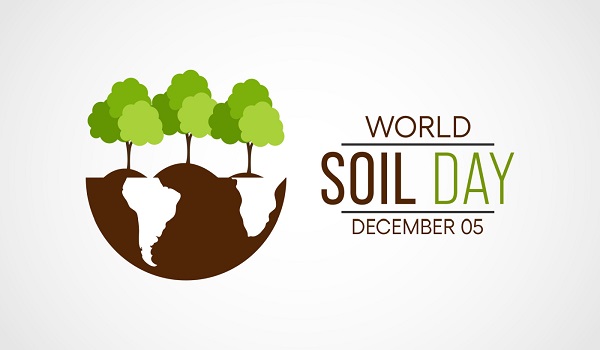This World Soil Day highlights the urgent need to address India’s soil health crisis, a cornerstone of agriculture and food security. With over 50% of the population reliant on farming, deteriorating soil quality has become a major challenge. Over 30% of India’s soil is degraded, threatening sustainable agriculture.
The Numbers Behind the Crisis
Nearly 40% of India’s agricultural land suffers from severe nutrient deficiencies, with a 23% drop in soil organic carbon over two decades. The misuse of nitrogenous fertilizers has disrupted the NPK ratio to 7:2.8:1—far from the ideal 4:2:1—weakening soil fertility. Additionally, nearly 97 million hectares, or 29.3% of land, face desertification. Erosion alone costs India ₹50,000 crore annually in lost topsoil.
Farmers at the Forefront
Farmers like Ramesh in Madhya Pradesh struggle with declining yields despite adopting modern techniques. His soybean yield dropped from 15 to 11 quintals per hectare over four years, as soil tests revealed depleted organic carbon and micronutrient levels. This story reflects a widespread issue across intensive farming regions.
Impacts on Food Security and Economy
India’s growing population, projected to reach 1.7 billion by 2050, will require 350 million tonnes of food grains annually. However, poor soil health could reduce agricultural productivity by 20-30%, jeopardizing both food security and farmer livelihoods.
Government Efforts for Soil Restoration
The Indian government has launched initiatives to combat soil degradation:
- Soil Health Card Scheme (2015): Over 28 crore cards have guided farmers toward balanced fertilizer use, reducing costs by 10-25% and improving yields by 5-6%.
- Fertilizer Subsidies: Allocations of ₹1.64 trillion for FY 2024-25 emphasize efficiency, with nano-fertilizer trials showing promise in reducing nitrogen use by 20%.
- NMSA and Organic Farming: Under programs like Paramparagat Krishi Vikas Yojana, over 40 lakh hectares are now under organic farming, benefiting thousands of farmers.
The Path Ahead
While government schemes set the foundation, private sector involvement is essential to develop sustainable solutions like bio-fertilizers and regenerative farming technologies. Collaborative efforts between policymakers, scientists, and industries are vital to reversing soil degradation.
On World Soil Day 2024, let’s recognize that restoring soil health is not just about agriculture—it’s about securing India’s future. By protecting this vital resource, we can ensure prosperity, food security, and environmental sustainability for generations to come.


